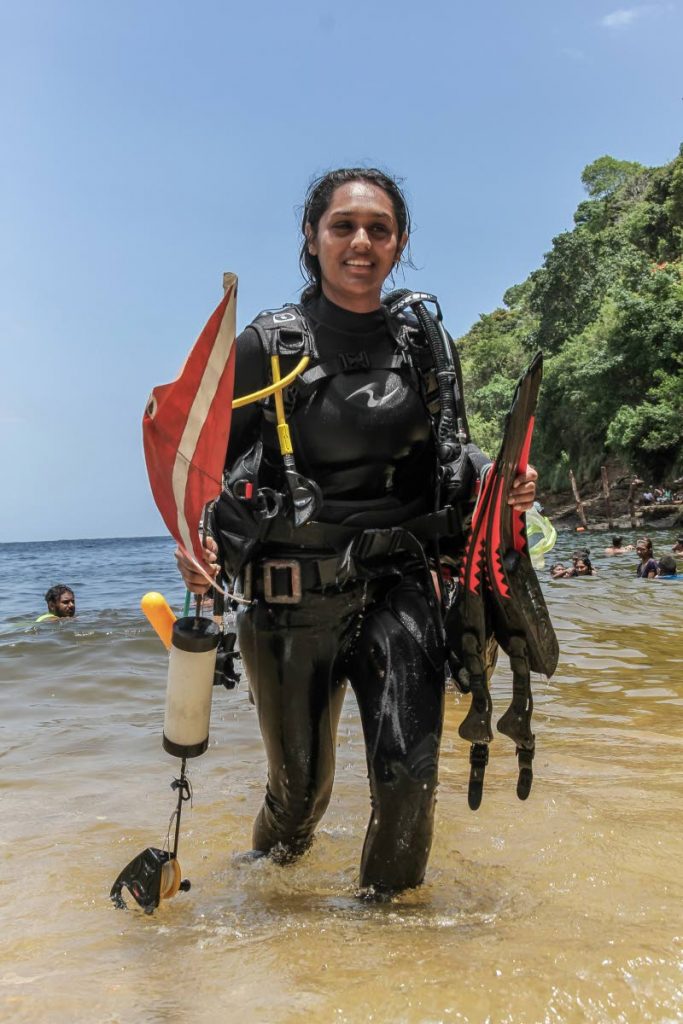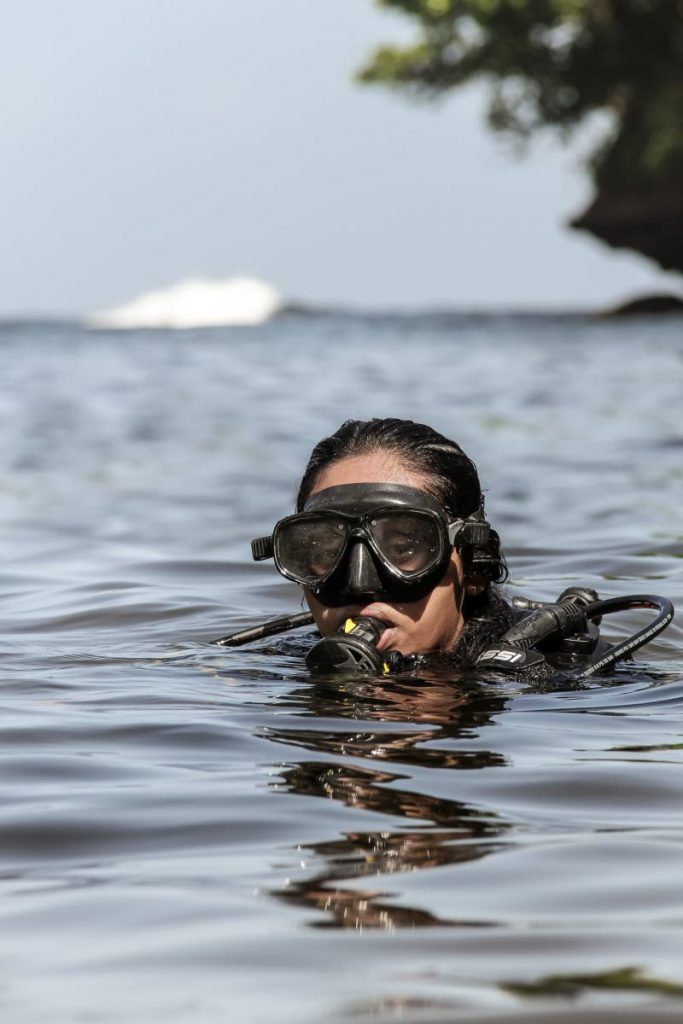In the Lion's Den

When Riesa Sumair graduated from UWI, St Augustine in 2015 with a degree in business management, her parents probably didn’t expect she’d choose fish vendor as her profession.
“They have been incredibly supportive, though and have been the ones pushing me to stick with this fish-vending business,” she chuckled.
Riesa, 24, is the founder of Lion’s Den Seafood, a sustainable seafood distributor that started out as a hobby, but morphed into a major outlet for divers in Tobago to hunt and sell lion fish, an invasive species wreaking havoc on local reefs.
“It didn’t start out as an entrepreneurial endeavour. My diving team and I would go on dives and it was just like, oh, there’s a lionfish. We need to get rid of them. And we’d catch it for dinner,” she told Business Day. She did notice, though, that lion fish could be a sustainable niche market and no one else was filling the gap, and so she decided to do that herself.
“I had quit my job and blew all my savings on dive trips so about nine months into unemployment and being frustrated and depressed, I decided to take action. It’s something that needs to be done. It needs to be managed and there’s no one consistently trying to assist with the eradication,” she said.

Lionfish are native to tropical reefs in the Pacific, but it’s thought they first appeared in the Atlantic in the late 1980s, off the Florida coast, probably when a pet owner (they’re popular aquarium fish) released one into the ocean. Since then, the species has spread throughout the Caribbean basin, threatening native species. The lionfish has no natural predators in the Atlantic to keep populations in check, a daunting thought considering females are prolific procreators, spawning up to two million eggs a year, carried on ocean currents. They also have voracious appetites, contributing to the depletion of local fishstock. Tobago fishermen are therefore grateful when Riesa and her diving partners catch them.
“They eat everything. When we clean them we find all sorts of baby fish in their guts. They even eat juvenile lobsters and crabs,” Riesa said.
The best solution, then, is to eat them. The fish can grow up to three pounds, with a white, flaky meat similar to grouper. Many people are skeptical to eat lionfish because of its distinctive spines that can inject the unsuspecting with an uncomfortable but non-lethal venom. The venom, though, only resides in the spine, the flesh is safe to eat. To allay customers’ fears, Riesa de-spines, cleans and scales all her products.
She sells lionfish for $60 a pound, but, she said, the markup isn’t that great. “It’s actually quite depressing when I think about it,” she laughed.
Considering the effort it takes to catch lionfish, the expense is justified. It’s not an easy fish to catch. Traditional methods won’t do. Lionfish are caught by spearfishing, and divers have to go deep — up to 100 metres — to find sustainable numbers to justify a commercial dive. “The equipment is expensive, up to $10,000, and there are significant risks. I hope people can understand we have factor all those elements when we consider a price,” she said.
Then there’s the unreliability of the inter-island seabridge. Fish is obviously a perishable good, and Riesa prides herself on the freshness of her product, so for the whole Lent/Easter vacation period when the seabridge was all but shut down, she had to hold on her supply until it was back up again.
There is interest though from restaurants, food trucks and gourmet chefs, as well as individuals, but Riesa admits she’s still trying to find a balance with coming up with a fair wholesale price.
That said, she appreciates the opportunity lionfish hunting can give divers as an alternative means of income since Tobago tourism has almost ground to a halt.
To encourage more lionfish hunting — and catching — she and her partners, R&C Dive Shop and Explorers of the Deep are hosting their first lionfish competition in November. “We have lots of prizes for categories like most lionfish caught, biggest lionfish and smallest lionfish. We included the category “smallest lionfish” especially because we wanted to emphasise that all lionfish are dangerous and should be exterminated,” she said.
It’s also a way to create business and buzz for the local dive industry. “You have to register through a local dive shop. It doesn’t have to be ours, it just has to be local,” she said.
Lion’s Den encourages local, sustainable fishing, Riesa said. “At the end of the day, it’s all about helping local fishermen survive."

To find out more about Riesa, Lion's Den and lionfish, visit her on Instagram @lions_den_seafood or on Facebook: Lion's Den Seafood.


Comments
"In the Lion’s Den"